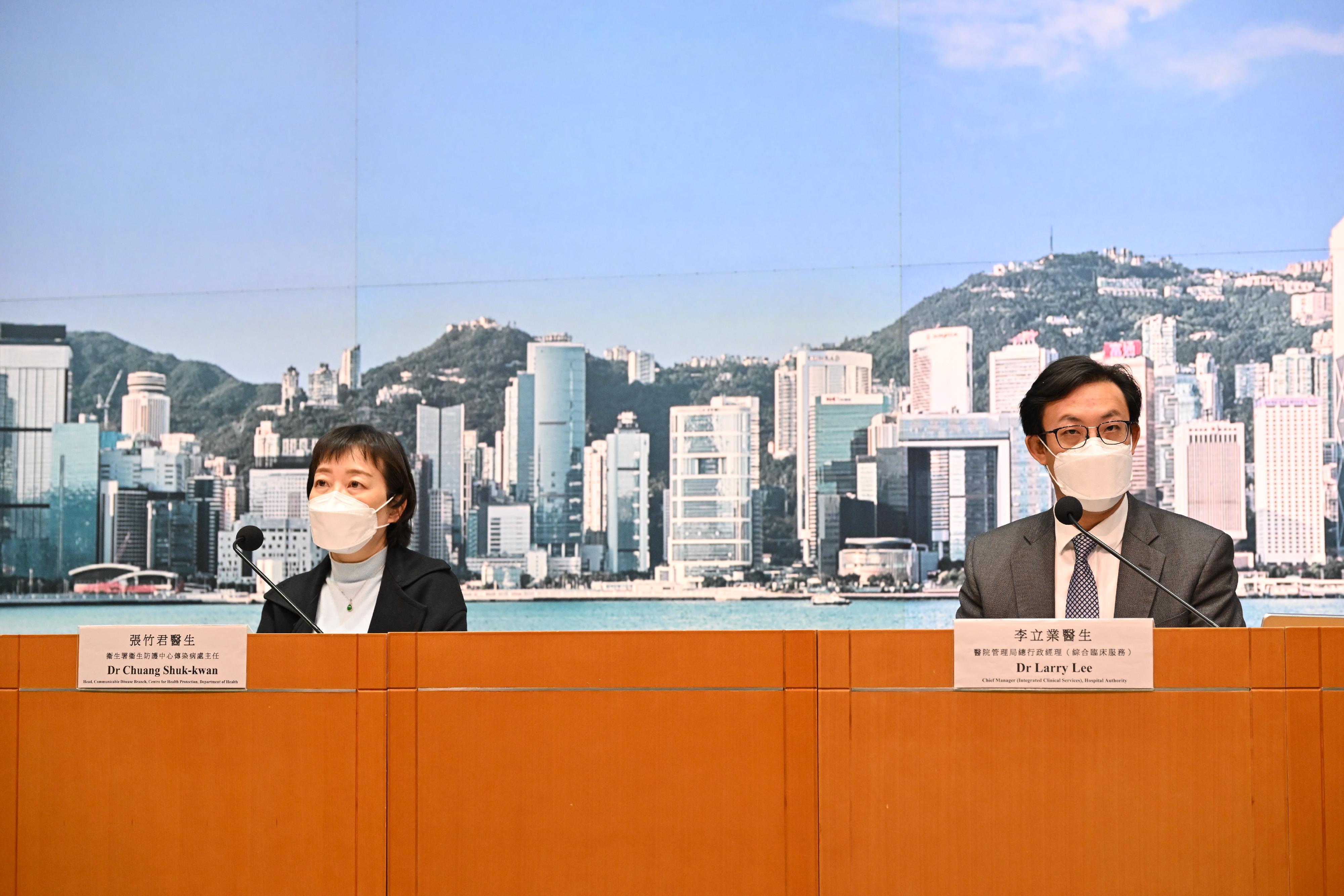Government enforces “restriction-testing declaration” and compulsory testing notice in respect of specified “restricted area” in Kwong Shung House, Kwong Fuk Estate, Tai Po
​The Government yesterday (March 25) exercised the power under the Prevention and Control of Disease (Compulsory Testing for Certain Persons) Regulation (Cap. 599J) to make a "restriction-testing declaration" effective from 3.30pm yesterday, under which people (hereafter referred to as "persons subject to compulsory testing") within the specified "restricted area" in Tai Po (i.e. Kwong Shung House, Kwong Fuk Estate, Tai Po, excluding social service units thereat) were required to stay in their premises and undergo compulsory testing. Persons subject to compulsory testing are required to stay in their premises until all such persons identified in the "restricted area" have undergone testing and the test results are mostly ascertained.
In addition, the Government issued a compulsory testing notice yesterday to any person who had been present at the above building for more than two hours from March 12 to March 25, 2022, to undergo compulsory testing on or before March 27, 2022, even if they were not present in the "restricted area" at the time when the declaration took effect. The Government finished the compulsory testing exercise at around 11am today (March 26) and is now carrying out enforcement actions in the "restricted area" to verify that all people in the "restricted area" have undergone compulsory testing. The Government will further announce the revocation time of the declaration.
Starting from around 11am today, persons in the specified "restricted area" in Tai Po who have undergone testing and are able to present SMS notifications with negative test results or wear wristbands as proof of having undergone testing may leave the "restricted area" through the designated exit after providing personal information to a prescribed officer.
The Government set up temporary specimen collection stations in the "restricted area" yesterday and requested persons subject to compulsory testing to collect combined nasal and throat swab samples at the stations to undergo a COVID-19 virus test before 9pm yesterday. Around 1 530 people within the area had undergone testing, among which 51 cases tested positive were found. The Centre for Health Protection of the Department of Health will arrange to follow up.
Regarding cases tested positive in the specified "restricted area", the Government has provided additional food packs, health advice for persons tested positive pending admission to hospitals or isolation facilities, disinfection products and surgical masks to these persons and their household members pending follow-up arrangement.
Moreover, the Government also assigned staff to visit around 790 households within the "restricted area", among which 33 households did not answer the door. The Government will take measures to follow up.
The Government reiterates that enforcement actions will be taken seriously. Any person who fails to present an SMS notification with a test result or wear a wristband as proof of having undergone testing breaches the compulsory testing notice and may be liable to a fine of $10,000. The person will also be issued with a compulsory testing order, requiring him/her to undergo testing within a specified time frame. Failure to comply with the compulsory testing order or the "restriction-testing declaration" is an offence and the offender may be liable to a fine of level 4 ($25,000) and imprisonment for six months.

